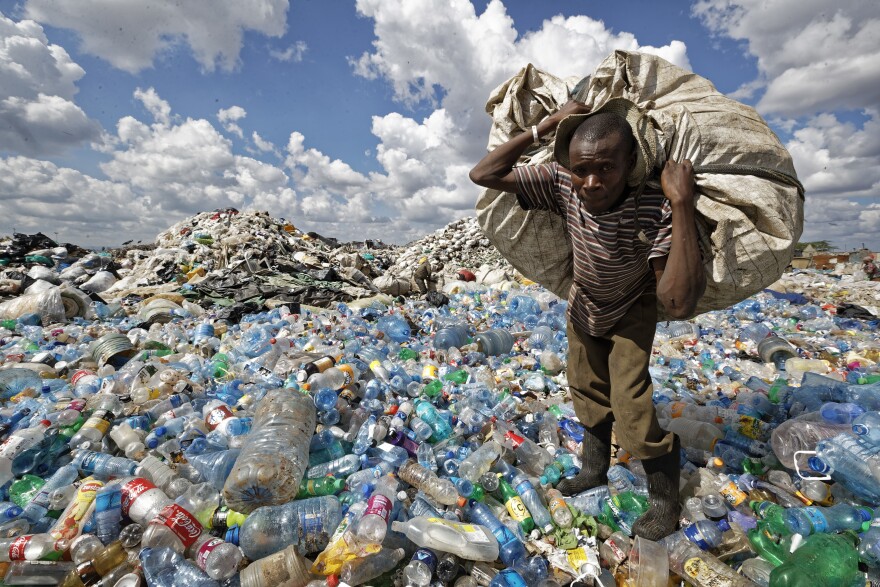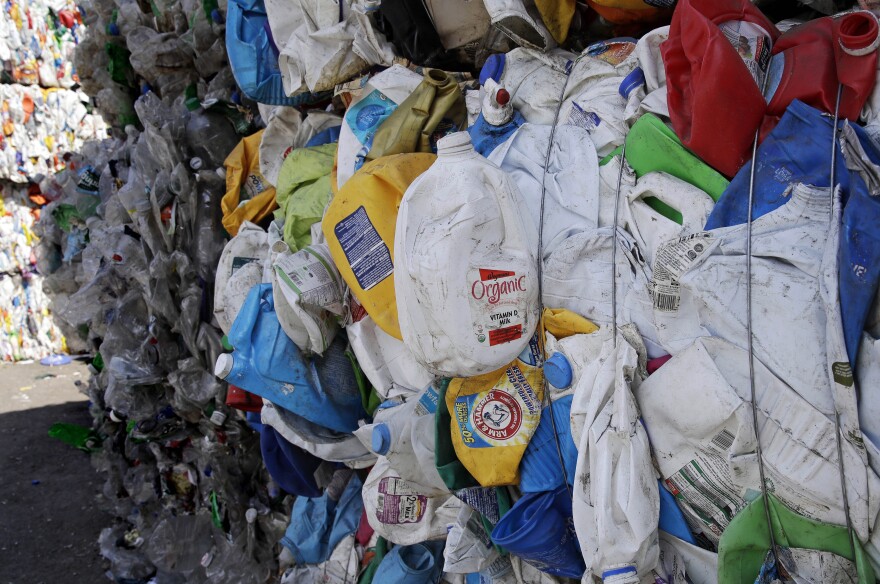A law that would respond to the plastic waste crisis in the U.S. is advancing in the state Legislature. It passed the state Senate earlier this month; a hearing in the House appropriations committee is expected this week.
If enacted, it would both reduce the amount of plastic waste and encourage more recycling – after markets for discarded plastics have taken big hits.
“Our landfills are just overflowing with plastic packaging, and we can and must do better with both recycling and reducing the amount of waste,” says Rep. Liz Berry, a Democrat from Seattle who is shepherding the bill through the House.
Three years ago, China stopped taking most recyclables from abroad. Bales of dirty materials started piling up, and consumers here learned that only about 10 percent of the plastics we put out for recycling actually stay out of landfills.
The bill would address that by requiring minimum amounts of recycled content in plastic bottles, jugs and trash bags that are manufactured or sold in the state. The intent is to create demand for recycled plastic resin, which had been hard to push through because of very low prices of virgin resins from inexpensive oil and gas in recent years.
“It's so clear that we need to improve end markets and our recycling system and make recyclables more valuable. And that's why recycled minimum content is so important. And that's what this bill does,” Berry says.
The requirements would be phased in, gradually reaching 50 percent over the next 10 years.
At the same time, the bill would reduce plastic waste, first by banning most foam containers and packing peanuts statewide. The foam is toxic and can be deadly to marine life. It’s also very rarely recycled.
“If it's not reusable, recyclable or compostable, we should no longer be making it in the year 2021,” says Sen. Mona Das, a Democrat from Kent who is the prime sponsor of the bill.
“We have lots of alternatives. And so we really need to stop making these products out of toxic materials like Styrofoam.”
One such alternative is compostable foam made from discarded chitin, found in the shells of crustaceans. Also available are many products made from paper or compostable plastics, already in use for takeout orders from many food-service businesses.
The law would further reduce plastic waste by requiring customers to opt in before food-service businesses include plastic utensils, straws, condiment packets and some plastic lids in their orders.
The bill has lots of backers among nonprofit groups that advocate for the health of oceans, rivers and streams, as well as better stewardship and more transparency.
Heather Trim, executive director of Zero Waste Washington, which championed the statewide ban on single-use plastic bags that took effect this year, says the recycling crisis with China has created “a reckoning here in the Pacific Northwest.” Many people are frustrated – and concerned about greenwashing.
“We really strongly need to address our recycling problem. People want to have real recycling and know, in particular, that their plastics are going to make new plastic items,” Trim says.
She says the law would lead to those outcomes – and also help companies reach goals they have already set to use recycled plastic in their packaging.
The bill passed the Senate in early March with votes from three Republican lawmakers.
“And I believe we will also get Republican support in the House as well,” Das says. “A nice bipartisan plastics bill, you got to love that.”








